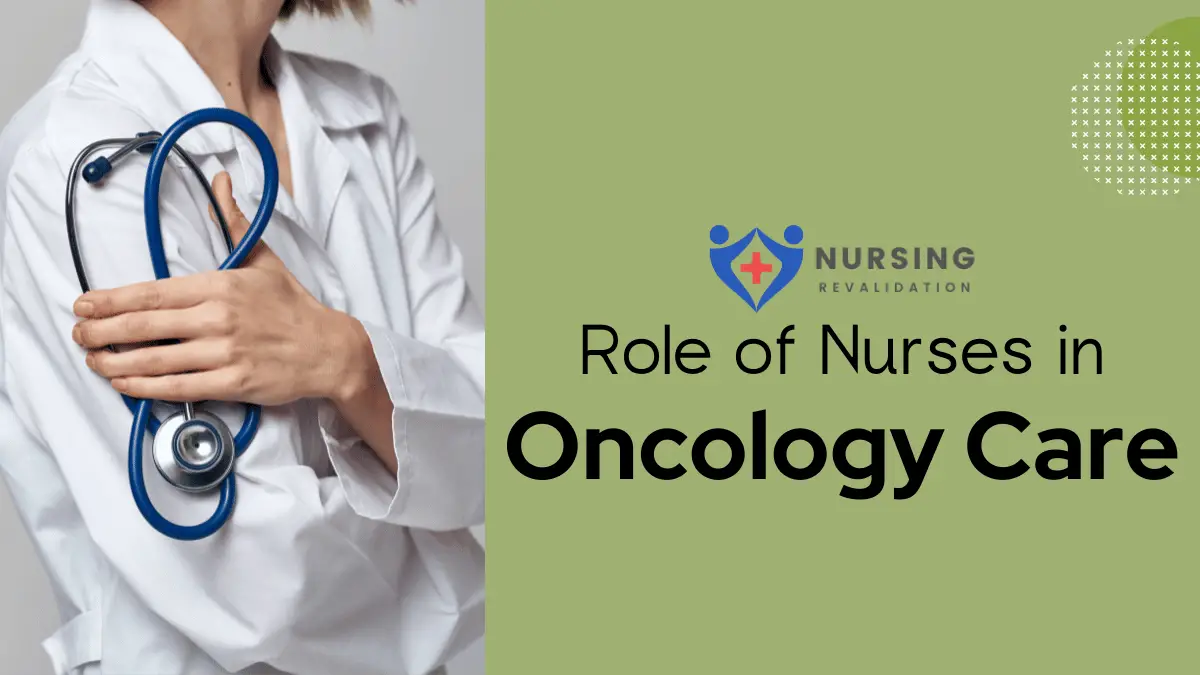In the realm of oncology care, nurses play a pivotal role in providing comprehensive support to patients battling cancer. Their contributions extend far beyond administering medications or monitoring vital signs; they serve as compassionate caregivers, educators, advocates, and crucial members of the multidisciplinary healthcare team. In this article, we delve into the multifaceted responsibilities of oncology nurses, exploring their indispensable role in enhancing patient outcomes and quality of life.
Understanding Oncology Nursing:
Defining Oncology Nursing
Oncology nursing encompasses the specialized care provided to individuals diagnosed with cancer throughout their treatment journey. It involves a holistic approach that addresses the physical, emotional, and psychosocial needs of patients and their families.
Scope of Practice
Oncology nurses possess specialized knowledge in cancer care, including the understanding of various cancer types, treatment modalities, symptom management, and palliative care principles. They collaborate closely with oncologists, surgeons, radiation therapists, and other healthcare professionals to develop individualized care plans tailored to each patient’s unique circumstances.
Key Responsibilities
Administering Chemotherapy and Other Treatments: Oncology nurses are proficient in administering chemotherapy, immunotherapy, targeted therapy, and other complex treatments, ensuring accurate dosing and monitoring for adverse reactions.
Symptom Management: They excel in assessing and managing cancer-related symptoms such as pain, nausea, fatigue, and peripheral neuropathy, utilizing evidence-based interventions to improve patients’ comfort and quality of life.
Patient Education: Educating patients and their families about their diagnosis, treatment options, potential side effects, and self-care strategies is a fundamental aspect of oncology nursing. Empowering patients with knowledge fosters active participation in decision-making and promotes adherence to treatment plans.
Psychosocial Support: Oncology nurses provide invaluable emotional support and counseling to patients grappling with the psychological impact of cancer diagnosis and treatment. They offer a listening ear, facilitate coping mechanisms, and connect patients with support services and resources to address their psychosocial needs.
Survivorship Care Planning: As cancer survival rates continue to improve, oncology nurses are increasingly involved in developing survivorship care plans that outline long-term follow-up care, surveillance, and strategies for managing late effects of cancer treatment.
Table: Overview of Oncology Nursing Responsibilities
| Responsibility | Description |
|---|---|
| Administering Treatments | Administer chemotherapy, immunotherapy, targeted therapy, and supportive medications; monitor for adverse reactions and provide supportive care. |
| Symptom Management | Assess and manage cancer-related symptoms such as pain, nausea, fatigue, and neuropathy through evidence-based interventions and supportive care measures. |
| Patient Education | Provide comprehensive education to patients and families about their diagnosis, treatment options, side effects, self-care strategies, and available support resources. |
| Psychosocial Support | Offer emotional support, counseling, and coping strategies to patients and families grappling with the psychological impact of cancer diagnosis and treatment. |
| Survivorship Care Planning | Develop individualized survivorship care plans outlining long-term follow-up care, surveillance, and strategies for managing late effects of cancer treatment. |
The Importance of Oncology Nursing Expertise:
Patient-Centered Care
Oncology nurses embody the principles of patient-centered care, placing the individual’s needs, preferences, and values at the forefront of decision-making. Their holistic approach fosters trust, enhances communication, and promotes shared decision-making between patients, families, and the healthcare team.
Clinical Competence and Continuity of Care
Their specialized training equips oncology nurses with the clinical skills and expertise necessary to navigate the complexities of cancer care. From assessing treatment response to managing treatment-related complications, they ensure continuity of care throughout the treatment trajectory, promoting seamless transitions between care settings and empowering patients to navigate challenges effectively.
Advocacy and Empowerment
Oncology nurses serve as tireless advocates for their patients, championing their rights, preferences, and access to quality care. Whether advocating for pain management interventions, facilitating access to supportive services, or addressing barriers to treatment adherence, they play a vital role in empowering patients to assert their autonomy and make informed decisions about their care.
Enhancing Patient Outcomes:
Improving Treatment Adherence and Outcomes
Studies have consistently demonstrated the positive impact of oncology nursing interventions on treatment adherence, symptom management, and overall patient satisfaction. By providing personalized education, emotional support, and proactive symptom management, oncology nurses help mitigate treatment-related side effects, reduce hospitalizations, and optimize treatment outcomes.
Promoting Quality of Life
Beyond medical interventions, oncology nurses contribute to enhancing patients’ quality of life by fostering hope, resilience, and a sense of normalcy amidst the challenges of cancer treatment. Their compassionate presence, empathetic communication, and holistic support enable patients to navigate their cancer journey with dignity and grace.
The Future of Oncology Nursing:
Advancements in Oncology Care
As the landscape of oncology care continues to evolve with advances in precision medicine, immunotherapy, and supportive care interventions, the role of oncology nurses will become increasingly indispensable. Embracing ongoing education, professional development, and interdisciplinary collaboration will be paramount to ensuring that oncology nurses remain at the forefront of delivering high-quality, evidence-based care to patients with cancer.
Conclusion:
In conclusion, oncology nurses are the unsung heroes of cancer care, providing compassionate support, clinical expertise, and advocacy to patients and their families at every stage of the cancer journey. Their holistic approach, patient-centered care philosophy, and unwavering commitment to excellence exemplify the highest standards of nursing practice. As we look to the future, acknowledging and valuing the indispensable role of oncology nurses is essential for advancing the quality, safety, and efficacy of cancer care delivery worldwide.

